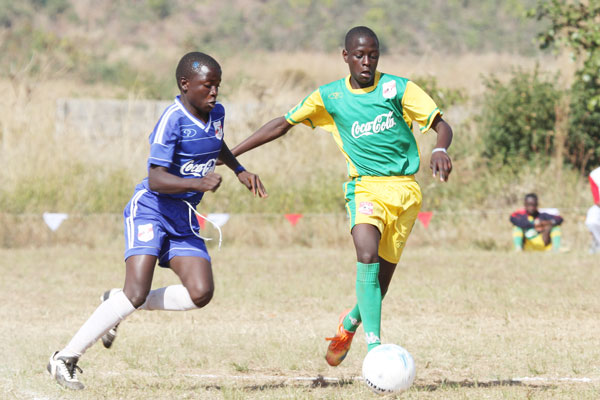
THAT 2017 Under-15 boys champions Rusununguko High School gallantly limped to the title with just 10 players the entire tournament is stuff that fairytales are made of.
BY MUNYARADZI MADZOKERE

Yet it reflects on the sad reality of an age-cheating cancer that organisers of the National Association for Secondary School Heads (Nash) tournament have been fighting in vain for quite some time.
Rusununguko had half their team fail to pass the outmoded initial physical vetting process while some schools reportedly had to play with as few as eight players in the group stages.
Despite introducing a strict documentation screening criteria that involves Grade 7 result slips, school identification, a team photo from the initial stages of the competition among other things; it was the physical vetting that took precedence.
It was even more shocking that scores of budding players participated at every stage of the competition only to be disqualified at the national finals due to physical appearance.
“We had a challenge with the vetting process where most kids were vetted out by the physical process before we verified the documents and some teams had to play with inadequate players. It was good to do that so that we create an even playing field at the tournament,” Nash official Ropafadzo Matemavi told Sports World.
“We do not have (Magnetic Resonance Imaging) MRI scans, hence we looked at physical appearance of children and after we did that we were satisfied that the children who remained were of the same age.”
- Chamisa under fire over US$120K donation
- Mavhunga puts DeMbare into Chibuku quarterfinals
- Pension funds bet on Cabora Bassa oilfields
- Councils defy govt fire tender directive
Keep Reading
Matemavi said it had now become important for Zimbabwe to follow what other countries are doing by ensuring that all the participating players undergo MRI scans of the wrist — a process that determines one’s age.
World football’s governing body Fifa has in recent years encouraged and supported participating member associations to conduct their own MRI tests in the build-up to youth tournaments in order to ensure that players are compliant with the age limit.
“I strongly feel we will need MRI scans in future because the physical appearance vetting process is obviously flawed and documents are being doctored. We might have to invest in one of those machines but currently it’s a matter of funds which is a hindrance,” he added.
This year marked the 28th edition of the Copa Coca-Cola event, but sadly the organisers are yet to find a lasting solution to age-cheating, which continues unabated.
However, Matemavi said this year’s edition of the Copa finals was the best they have had.
“I still feel it was the best finals we have had in terms of administration, facilities, officiating and quality of football. We had very few complaints from participating schools,” he said.
Masvingo province’s Chidyamakono won the girls competition for a record fifth straight time.
Two groups comprising 20 of the tournament’s best players in the boy and girls sections were selected to compete at the inaugural Five-A-Side World Cup in South Africa later this year.
However, despite the age-cheating controversy, the Copa Coca-Cola has continued to provide a platform for players like the legendary Peter Ndlovu to announce their arrival on the big stage.
Two years ago, Zimbabwe was praised for its pioneering role and Coca-Cola noted that more than 80 000 schools from across the world took part in the Copa Coca-Cola tournament the previous year with more than 1,5 million teenage footballers showcasing their talent.
A global research conducted by the sponsors, Coca-Cola, praised Zimbabwe for its pioneering role in introducing the tournament in 1989, when a 16-year-old Ndlovu was still a student at Mzilikazi High School.











